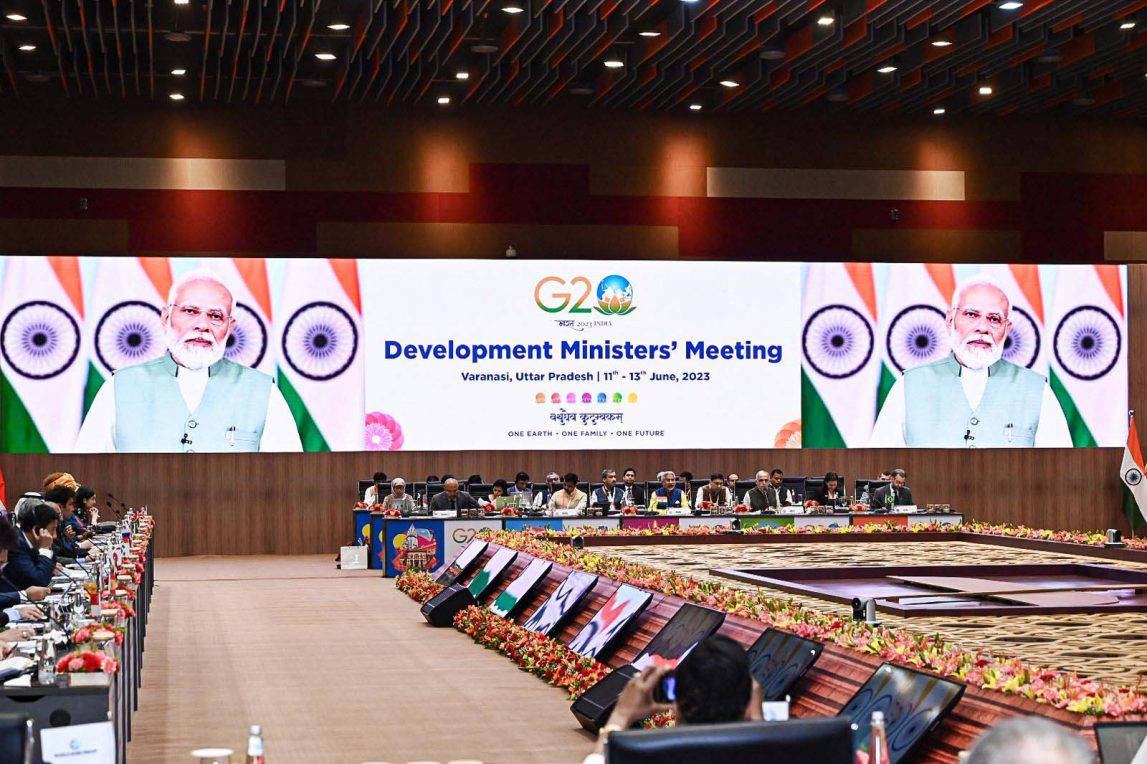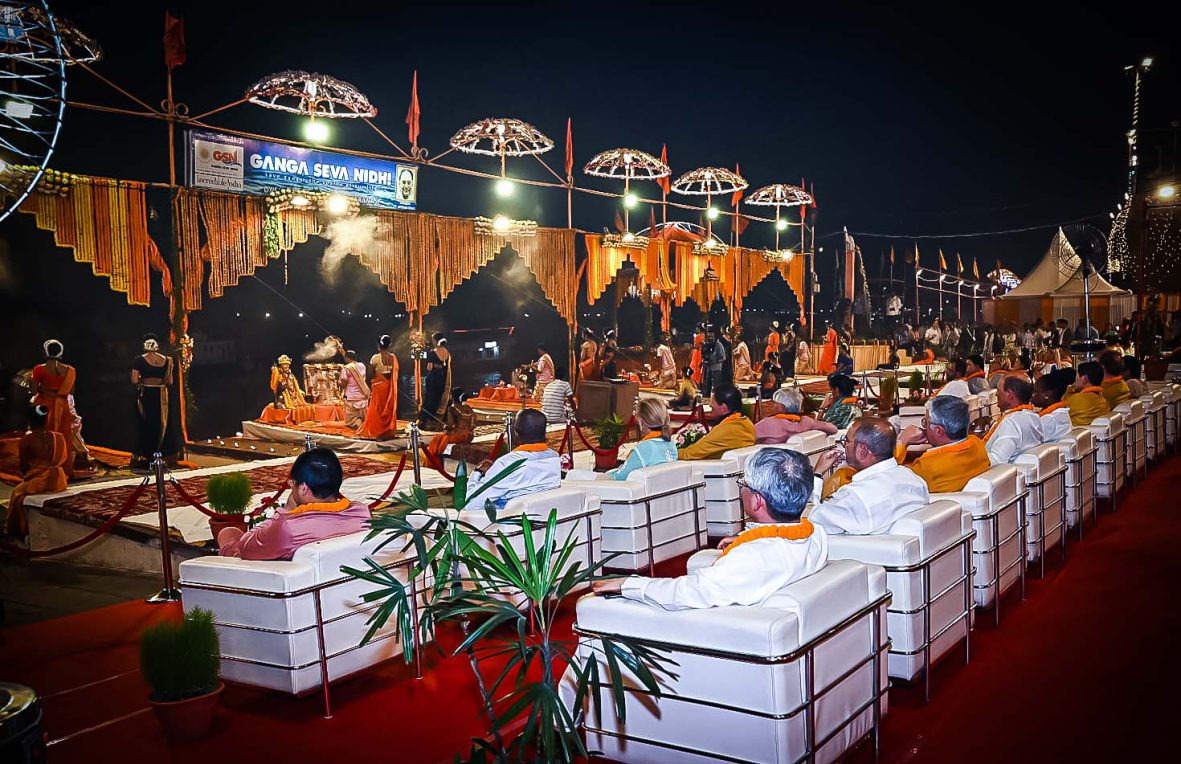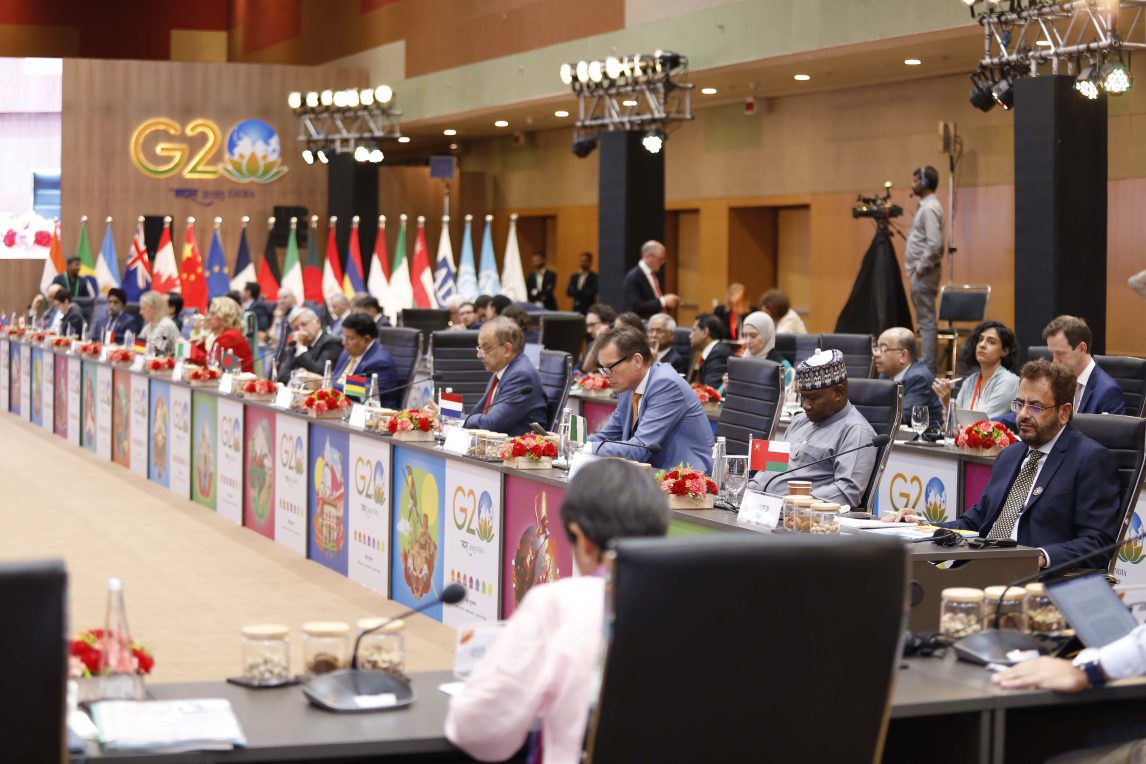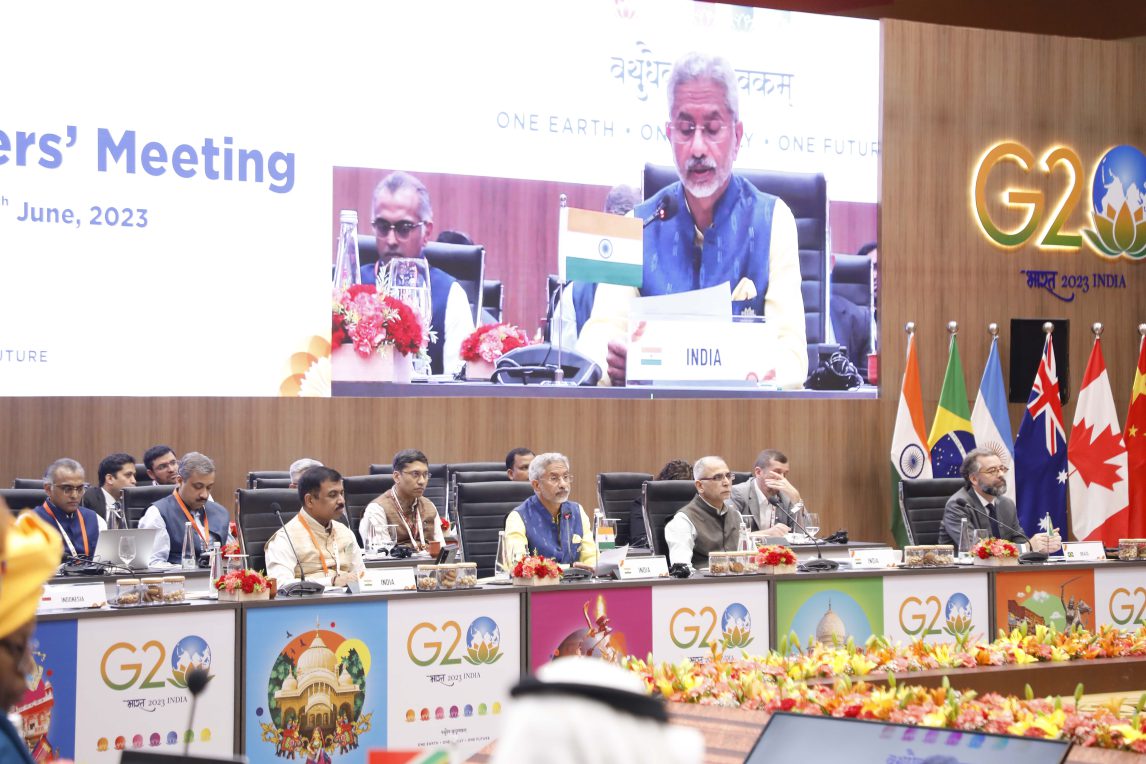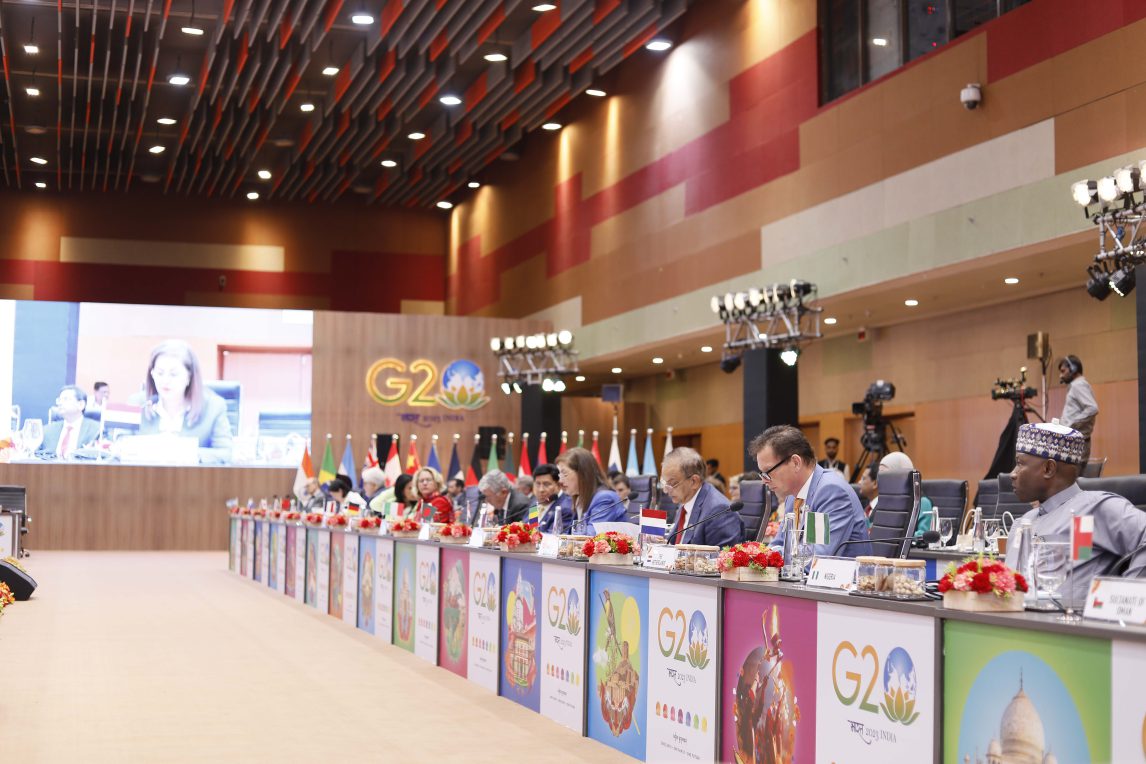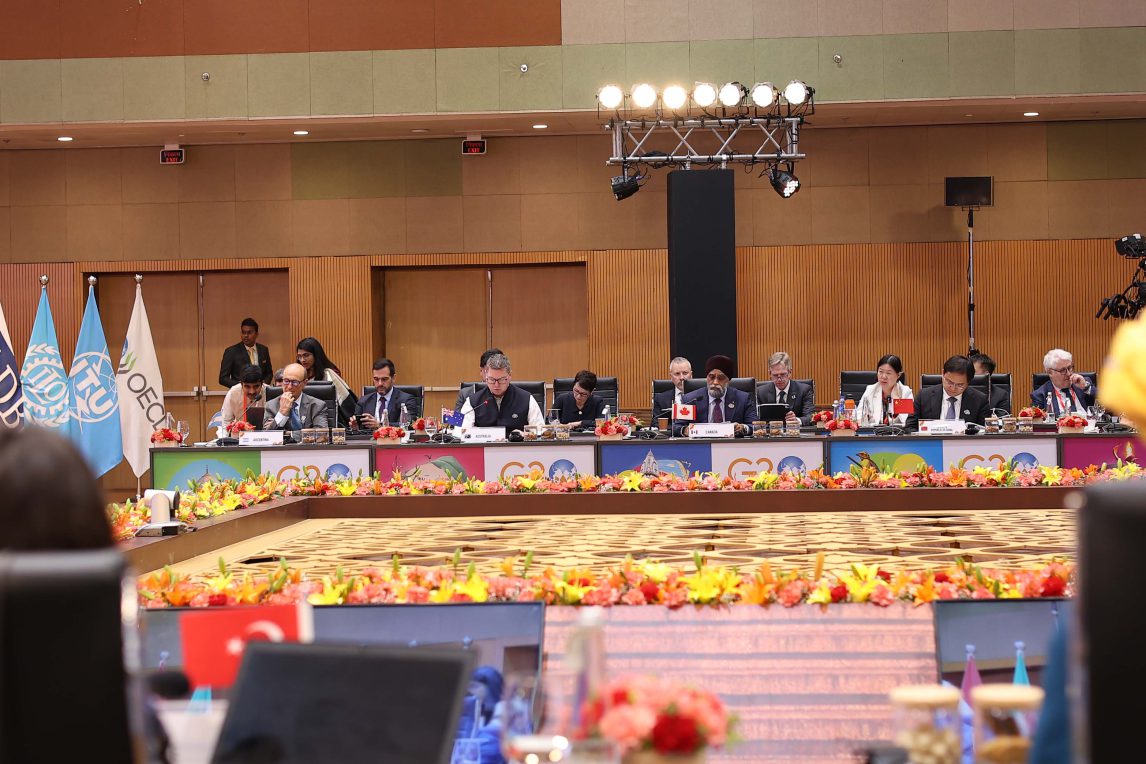The third G20 Development Ministers’ Meeting in G20 history took place under the Indian Presidency, between June 11 to 13 in Varanasi, Uttar Pradesh. Union Minister of External Affairs, Government of India, Dr S. Jaishankar chaired the meeting. The event was attended by delegations from all G20 countries, guest countries and invited international organizations and multilateral development banks in person. The meeting focused on two key issues- accelerating progress towards SDGs through multilateralism; and Green Development through a LiFE approach.
The Prime Minister (PM) of the Republic of India, Shri Narendra Modi, delivered a special video address, where he stressed on development being a core issue for the Global South in the face of disruptions caused by the COVID-19 pandemic, food and fuel crises, and geopolitical tensions. He highlighted that it was the collective responsibility of the world to halt the reversal of SDG progress and fulfil the aspirations of the Global South to leave no one behind. PM Modi emphasised that the decisions made by the Development Working Group (DWG) carried great significance for the whole of humanity and stated the importance of G20 promoting a pro-planet lifestyle and climate action through LiFE and accelerating progress on SDGs through collective actions identified in the G20 Action Plan.
The first session on ‘Multilateralism: Collective actions for accelerating progress towards SDGs’ opened with a special address by the Vice Chairman of NITI Aayog- Mr. Suman Berry, which is responsible for national-level indicative planning in India. The session focused on the universality of the SDG Agenda and the impact of multiple cascading crises on the progress made towards the SDGs. In this context, delegations welcomed the DWG’s focus on accelerating progress on the SDGs through ambitious collective actions and recognised the key role of international cooperation and multilateralism, in the spirit of ‘One Earth, One Family and One Future’. The opportunity to renew global commitments to implement the 2030 Agenda at its midpoint by leveraging multilateralism, global solidarity and concrete development actions was highlighted. The need for greater participation of developing countries in multilateral decision making to develop a more inclusive, responsive and resilient international order was emphasised. In this regard, the African Union’s membership to the G20 was welcomed by delegations. The role of G20 in strengthening the multilateral system to deliver on the SDGs and enabling provision of global public goods was also discussed by Ministers.
The Indian Presidency’s leadership in promoting gender equality and women empowerment was welcomed and the impact of women-led development on economic development and social progress was recognised. Delegations also commended India’s focus on digital transformation to put the SDGs back on track, including the need to bridge the data divide, the transformative role of data in enhancing the lives of citizens and tech transfer as an opportunity for developing countries. The need for new and sustainable sources of financing for development and greater cooperation in the face of shrinking fiscal spaces was emphasised, with some delegations highlighting the importance of access to climate finance to achieve climate and environment goals. The Ministers recognised the role of the G20 in bridging multiple agendas and the Indian Presidency’s role in contributing to the upcoming multilateral summits and the New Global Financing Pact through its Action Plan to accelerate progress on SDGs.
The second session on ‘Green Development through a LiFE approach’ focused on the need of a comprehensive approach which aims to promote the interlinkages between the development, environment and climate agendas, by maximising synergies and minimising trade-offs in our efforts to achieve sustainable development. Mr. Fatih Birol, Director of International Energy Agency, delivered a special address highlighting how the LiFE initiative, if implemented well, can reduce 2 billion pounds of CO2 emissions and create 15 million jobs by 2030. The Ministers emphasised on the interlinkages between the three dimensions of sustainable development- economic, social and environmental, and welcomed the holistic focus on sustainable production and consumption patterns through LiFE, which democratises climate action and impacts all aspects of development. Delegations also made suggestions on how to make LiFE a global movement including financing, ambitious public policies, education, digital transformation, promoting collective actions at all levels, knowledge sharing and evidence-based behavioural science.
The Ministers discussed the criticality of circular economies to bring the development and climate agendas together. In this regard, deliberations were held on nature-based approaches which combine scientific and traditional knowledge, zero waste approaches to maximise resource efficiency, the role of MSMEs and the impact of circular carbon economies and green bonds. The need for concessional resources for developing countries to complement SDG financing as well as technology transfer and knowledge sharing to enable LDCs and SIDS to harness the opportunities offered by these transitions was highlighted. Developing country delegations also emphasised on the need for developed countries to meet their financial commitments based on historical responsibilities, in line with common but differentiated responsibilities and respective capabilities.
At the end of the meeting, the Varanasi Development Ministerial Outcome Document and Chair’s Summary, which strongly reaffirmed global commitments to the full and effective implementation of the 2030 Agenda for Sustainable Development and the achievement of its SDGs, while leaving no one behind and putting sustainable development at the centre of the international cooperation agenda, was released. The Ministers unanimously adopted the Development Working Group’s outcome documents, namely the G20 Action Plan to accelerate progress on SDGs and the High-Level Principles on Lifestyles for Sustainable Development in the Varanasi Ministerial meeting.
Read the press release
- Ministry of External Affairs: External Affairs Minister Dr. S. Jaishankar To Chair G20 Development Ministers’ Meeting In Varanasi, Uttar Pradesh From 11th To 13th June, 2023
- Ministry of Information & Broadcasting: G20 Development Ministers’ Meeting
- Prime Minister’s Office: PM addresses G20 Development Ministers’ Meeting
